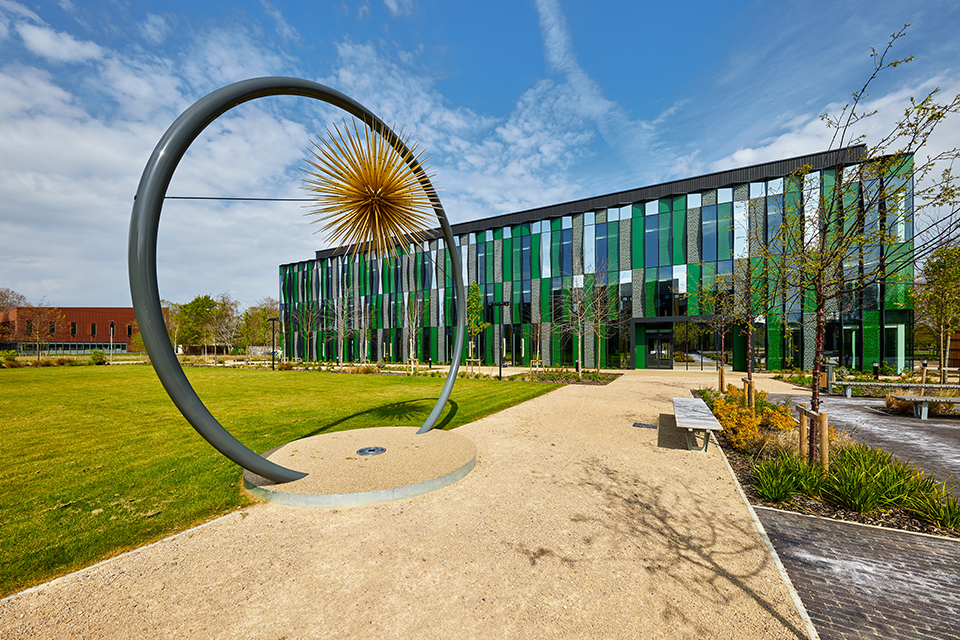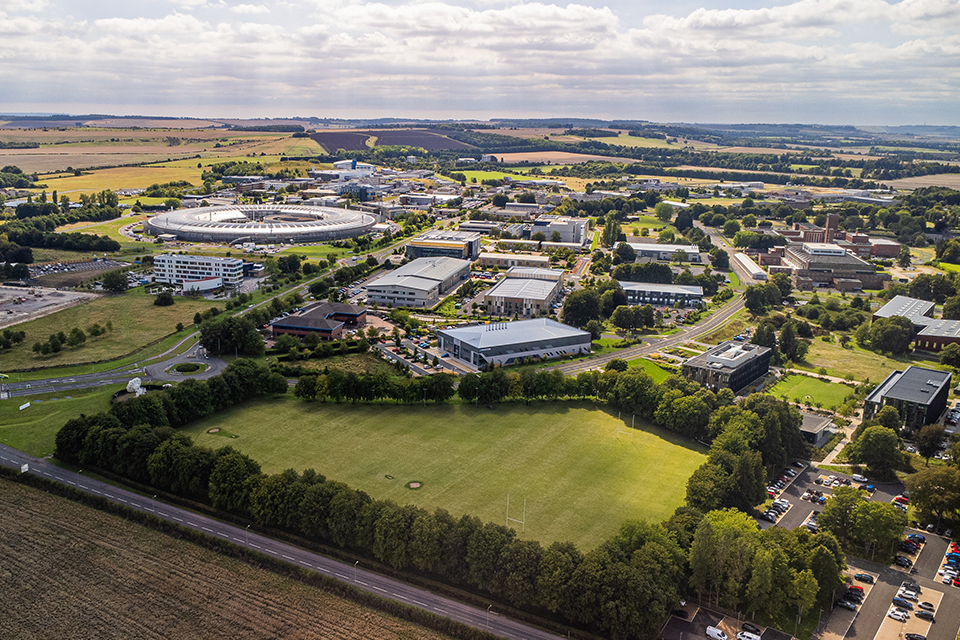The UK Space Agency is opening new headquarters in Harwell, Oxfordshire and regional offices in Scotland, Wales and the Midlands as it works to support the space sector across the UK.
Aligned with the government's Levelling Up strategy, the expansion will enable the Agency to collaborate more closely with the UK's thriving space sector, while promoting regional skills and job opportunities to deliver increasingly ambitious missions and capabilities.
The UK space sector is growing faster than the rest of the UK economy. It's worth over £17.5 billion per year and employs over 45,000 people, while satellites underpin £360 billion per year of wider economic activity.
The new HQ at Harwell is due to open in June, while offices at William Morgan House in Cardiff and Space Park Leicester will open in April, with the office at Queen Elizabeth House, in Edinburgh, opening later in the summer.

The location of the UK Space Agency's new headquarters, the Quad Two building at the Harwell Science Campus' Space Cluster in Oxfordshire.
Andrew Griffith MP, Minister for Space at the Department for Science, Innovation and Technology, said:
Harwell's Space Cluster is already a hub of collaboration with more than 100 thriving research organisations and 1,400 jobs making it the ideal location for the UK Space Agency's new headquarters.
At the same time our space sector has grown considerably across all parts of the UK and new offices in Edinburgh, Cardiff and Leicester will serve the talented space researchers and innovators around the country while creating more jobs, growing our local economies and strengthening the UK's science superpower ambitions.
Dr Paul Bate, CEO of the UK Space Agency, said:
This is a transformational moment for the UK Space Agency, responding directly to the feedback that the Agency should be embedded in the sector. Our new headquarters, located at the UK's biggest space cluster in Harwell, will connect to regional offices in Edinburgh, Cardiff, and Leicester, and our existing London and Swindon teams, helping us recruit space talent from across the nation and deliver the National Space Strategy.
This will place the UK Space Agency at the heart of the space sector we serve, boosting growth, improving relationships with regional organisations and supporting a strong, diverse and connected sector.
We have seen a significant rise in space organisations across the UK and it's crucial we nurture their skills and expertise, to ensure we continue this journey.
The new structure will create significant opportunities to build on high-growth areas, such as Earth observation and satellite broadband. It will also help the UK establish early leadership in emerging markets such as in‑orbit spacecraft servicing, active space debris removal, and the new lunar economy, enabling us to help forge a greener, smarter and more inclusive sector.
The Agency will retain offices in London and Swindon.

Harwell Campus, the location for the UK Space Agency's new headquarters.
UKspace Chair, John Hanley, said:
The Agency's decision to relocate its HQ will strengthen Harwell's reputation as a major international space hub. It will also enable many UKspace members based at the Space Cluster to enjoy closer collaboration and support from the Agency.
Furthermore, the opening of three regional offices in key locations will inevitably help the UK space sector ecosystem expand, as space-based businesses in those regions benefit from opportunities to interact more frequently with Agency staff.
Stuart Grant, Chief Executive of Harwell Campus, said:
We're delighted to welcome the UK Space Agency to the thriving space cluster of over 100 organisations at Harwell Campus. Their presence cements the campus' position as a leading international space hub and will help leverage synergies, drive innovation, and foster partnerships with key industry players.
As set out in the Space Industrial Plan, the government is committed to continuing its support for space clusters across the UK and providing the tools needed to drive collaboration between them and catalyse further investment.
Dr Barbara Ghinelli, Director for UKRI-STFC's Innovation Clusters and for the Harwell Campus, said:
The UK Space Agency joining the Harwell Campus is not just about connecting with our thriving community, but becoming integral to shaping the future of space exploration. It's about contributing to a collective vision shared worldwide, and that's to push our limits and tackle real-world problems through partnership, creativity, and innovation.






